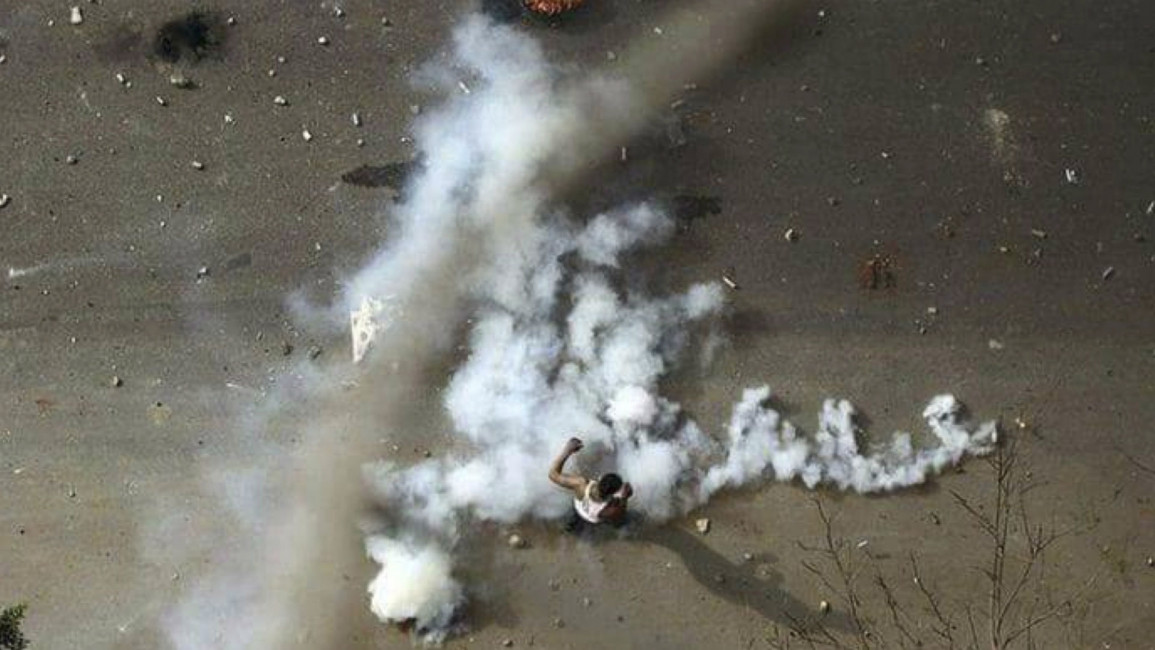Sudan's Bashir blames conspirators for protest violence
Sudanese President Omar al-Bashir on Tuesday blamed conspirators for violence during deadly anti-government protests, as an impoverished town held a "martyrs' rally" to honour those killed.
Bashir, speaking at a military base near the town of Atbara where the first protest erupted last month, also slammed some political groups who have called for regime change in Sudan.
"Those who conspired against us and planted traitors amongst us are those who carried out arson attacks and caused damage," the official SUNA news agency quoted Bashir telling soldiers.
The veteran leader, who has been in power since 1989, did not elaborate on who the alleged conspirators were.
Protests have rocked Sudan since December 19, when unrest broke out over a government decision to raise the price of bread.
In the initial protests that erupted in towns and villages last month before spreading to the capital Khartoum, several buildings of Bashir's ruling National Congress Party (NCP) were torched.
Authorities say at least 19 people including two security personnel have been killed during the demonstrations, but rights group Amnesty International has put the death toll at 37.
Bashir slammed some political groups that have called for him to go.
"Some people are saying that the army is taking power," Bashir said.
"I have no problem with that, because the army always guards the security of our homeland," he said without offering further details.
Analysts say the ongoing protests are the biggest threat to Bashir's three decades of rule since he swept to power in a coup backed by Islamists.
Martyrs’ rally
As he spoke to soldiers, hundreds of protesters held what organisers said was a "martyrs' rally" in the eastern agricultural town of al-Gadaref.
The rally was to honour the six people from the town who died in the protests sparked by bread prices tripling from one Sudanese pound to three (from about two to six US cents).
The main market was shut as demonstrators gathered in the downtown area, chanting slogans such as "Peace, justice, freedom" and "Revolution is the choice of the people".
Riot police fired tear gas as the protesters prepared to march to the provincial council building, witnesses said.
But some demonstrators managed to reach the building compound and one of them read out a petition calling for Bashir to resign, a witness told AFP by telephone on condition of anonymity.
The protest was organised by the Sudanese Professionals' Association, a group of teachers, doctors and engineers that has spearheaded the ongoing anti-government demonstrations across the country.
More than 800 protesters have been arrested across Sudan since the unrest began, officials say.
The authorities insist the situation has now stabilised despite protests rumbling on.
"The overall situation is calm across Sudan and life has returned to normal after recent incidents," police spokesman Hashim Ali Abdelrahim told SUNA after police chiefs met Tuesday.
Appalled
Opposition leaders, activists and journalists have been detained as part of a crackdown to prevent the spread of protests.
Bashir told police last month to use "less force" in their response to demonstrators.
Britain, Norway, the United States and Canada reiterated their concern over the situation in Sudan in a joint statement issued on Tuesday.
"We are appalled by reports of deaths and serious injury to those exercising their legitimate right to protest, as well as reports of the use of live ammunition against protesters," the statement said.
"We urge the government of Sudan to ensure that a fully transparent and independent investigation into the deaths of protesters takes place as soon as possible, and that those responsible are held to account."
It also called on Khartoum to release all those detainees held without charge, warning that the government's action in the issue "will have an impact" on engagements with the governments of the four countries.
Sudan has been facing a mounting economic crisis in the past year, led by an acute shortage of foreign currency.
Food and fuel shortages have been regularly reported across several cities, including the capital Khartoum, while the cost of food and medicine has more than doubled.
Agencies contributed to this report.
Follow us on Twitter: @The_NewArab



